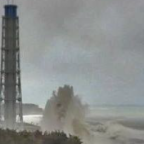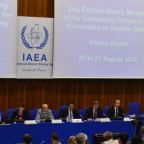Search results
GRS has locations in Cologne, Garching, Braunschweig and Berlin.
Our experts work in international committees, commissions, networks, partnerships and projects to further develop nuclear safety on a transnational basis.

Sound knowledge about the origin, spread and prevention of fires is essential to be able to assess and improve the fire safety of, among others, nuclear power plants (NPPs). Therefore, GRS continuously participates in research projects on the topic of fire protection in nuclear facilities which are conducted under the auspices of the OECD Nuclear Energy Agency (NEA).

On 11 March 2011, the most severe earthquake since records began in Japan occurred off the east coast of the Japanese main island of Honshū. The quake and especially the resulting tsunami devastated large areas of eastern Japan and caused an enormous number of casualties: Ten years after the tragedy, various official statistics count around 20,000 fatalities, and in December 2020, there were more than 2,500 people still considered missing. It is estimated that around one million buildings were destroyed or damaged.

Our five-part series "10 Years of Fukushima" looks at the nuclear accident in Japan from different perspectives. This week we present the lessons learned and consequences that the accident has had for nuclear power plant operation and supervision, both nationally and internationally.